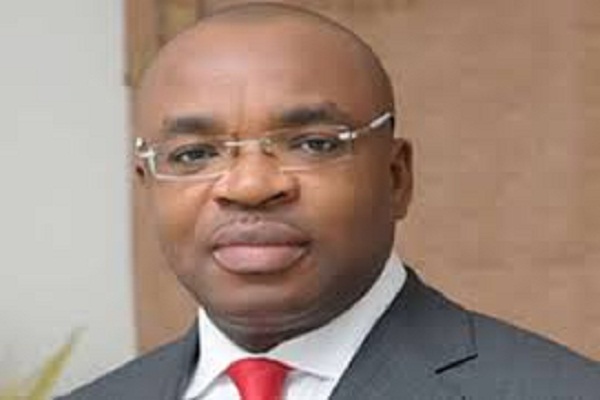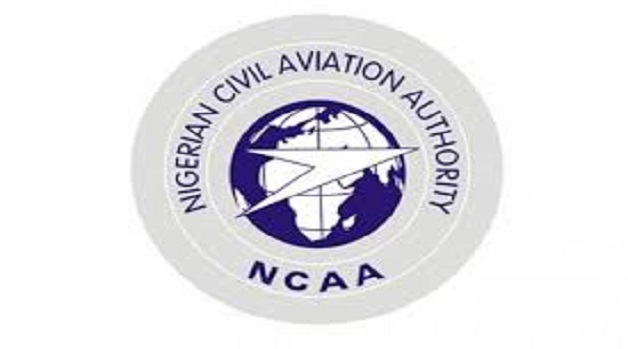News
Gov.Udom Receives Post COVID-19 Economic Committee Report

Governor Udom Emmanuel of Akwa Ibom State has received the report submitted by the 20-member committee put together by his administration to reposition the state for the post COVID-19 economy.
The report was submitted on Tuesday, June 9, 2020 at an event which had in attendance the governor and members of the State Executive Council.
The committee which had Prof. Akpan H. Ekpo, a former Director General of the West African Institute for Financial & Economic Management (WAIFEM) as Chairman and Prof Emmanuel Onwioduokit, HOD, Economic, University of Uyo as Secretary; also boasts a number of prominent entrepreneurs including Leo Stan Ekeh, Chairman, Zinox Group; Udom Inoyo former Executive Vice Chairman of ExxonMobil as well as other eggheads from the corporate and academic circles as well as seasoned administrators in its fold.
The 142-page report was divided into nine chapters, each of which addressed specific areas of interventions or terms of reference on what should be done in rejigging and restructuring Akwa Ibom state to navigate the post COVID-19 world.
Equally important, the report was classified into three different time frames, namely the immediate, short term and long term interventions.
They include mental orientation of the people, especially the youths; focus on agriculture, industry and service as potential mainstay of the Akwa Ibom economy in a post COVID-19 world without oil; massive efforts to continue the industrialization process in the state, increased participation of the youth in the economy and stamping out of cultism/other criminal activities in the state; completion of the Science Park to serve as a Silicon Valley of sorts for Akwa Ibom state as well as for job creation and improvement of Internally Generated Revenue (IGR); massive investment in infrastructure; re-visitation of the state’s waterways transportation; full autonomy for the state’s internal revenue board by disengaging it from the public service and the establishment of clear targets for it; recapitalization of state-owned financial institutions such as the Akwa Saving & Loans Ltd. and provision of credit facilities for low-income housing for residents; set-up of an independent data generation institution to aid the state’s planning purposes; inauguration of an Economic Advisory Council to assist in the conceptualization, formulation and implementation of government policies; establishment of a Reserve Fund to see the state through lean periods; recommendation of an exit plan for the state’s commercial ventures; identification of low-hanging fruits that the state can immediately take advantage of and the creation of a 30-year strategic development plan to be passed into law in the state.
Receiving the committee’s report, Governor Udom heaped praises on the members of the committee for completing its work within the one-month time frame outlined.
Specifically, he singled out two non-indigene members of the committee – the Zinox Chairman, Dr. Ekeh and Prof. Vincent Anigbogu, Director-General, Institute for National Transformation – for special praise.
‘‘On behalf of the good people of Akwa Ibom State and the Executive Council, I want to appreciate the members of this committee, beginning from the Chairman, Prof. Akpan Ekpo, the Secretary, Prof Emmanuel Onwioduokit and most especially those our brothers, Prof. Anigbogu, Leo Stan Ekeh and our sister Mary of the Securities and Exchange Commission, as busy as she’s been who still created time to serve her state irrespective of her busy schedule.
‘‘I really want to appreciate all of them specifically and convey the gratitude of our own people.
“I want to say we are grateful to Prof. Anigbogu, to Leo Stan Ekeh and all the Akwa Ibomites who have served on this committee.’’
Reacting to the recommendations of the committee, the Akwa Ibom Governor disclosed that his administration will implement every single one to the letter.
He also commended the innovative ideas for repositioning the state and empowering the youths through ICT, even as he welcomed the idea of mental re-orientation.
‘‘The only way forward and the fastest approach; I believe when I read your report, I will see as one of the low-hanging fruits, is to drive our youths through ICT.
“For this, we have to work with our brother, Leo Stan Ekeh, a friend of the state, who in fact, we must give a local government which he will adopt as the one he hails from in Akwa Ibom; so that he can help us drive the aspect of youths and ICT.’’
Referencing the growth of platforms such as Zoom, Microsoft Teams and Netflix, the governor affirmed that COVID-19 had created a number of business opportunities for people through ICT, noting that a lot more are coming.
‘‘I wouldn’t want Akwa Ibom to be left behind,’’ he declared.
On the 20-year strategic development plan for the state, Udom expressed excitement with the recommendation.
Also, he stated that the Executive Council was working on a similar proposal, noting that the proposal had undergone two reviews.
Subsequently, he assured of his commitment to conclude the economic plan as quickly as possible.
Equally important, he revealed the immediate set-up of a five-member implementation committee headed by the committee Chairman, Prof. Ekpo to see to the immediate execution of the report submitted by the committee.
Others include the Secretary, Prof. Emmanuel Onwioduokit; former Executive Vice Chairman, ExxonMobil, Mr. Udom Inoyo; Commissioner of Agriculture, Dr. Glory Edet and Hon. Eno Uwan.
News
AFC Appoints Ireti Samuel-Ogbu as Chair of Board of Directors

Africa Finance Corporation (AFC), the continent’s leading instrumental infrastructure solutions provider, has announced the appointment of Mrs Ireti Samuel-Ogbu as Chair of its Board of Directors. She succeeds Mr. Emeka Emuwa who has completed 12 years of meritorious service to the Corporation.

Mrs. Samuel-Ogbu brings a wealth of experience spread over three decades leading and transforming the banking sector in Europe, Middle East, and Africa. Until recently, she led Citi’s institutional businesses in Nigeria and Ghana, with oversight across Banking, Markets and Services.
During this period, she steered the franchise through significant macroeconomic and regulatory headwinds, strengthening its strategic momentum and resilience.
Her international career within Citibank included senior leadership roles across over 50 countries in the Europe, Middle East, and Africa region, during which time she worked in the United Kingdom, Nigeria, and South Africa.
Mrs. Samuel-Ogbu has extensive boardroom experience including Citibank Nigeria where she was a Non-Executive Director for 6 years and Chair of the Risk Committee prior to becoming the Managing Director.
She also served on the board of CHAPS Clearing UK, the high value payment system now operated by the Bank of England and a UK-based charity, Opportunity International.
Her extensive experience and unwavering dedication to the advancement of Africa make her a valuable asset to AFC at a time when the Corporation is more committed than ever to accelerating Africa’s transformation through bold investments, innovative financing models and catalytic partnerships.
AFC recently delivered a record-breaking FY2024 financial performance, with total revenue increasing by 22.8% to US$1.1 billion, surpassing the US$1billion milestone for the first time.
This strong performance was driven by several transformational projects including acting as the Lead Project Developer for the Lobito Corridor, a transformative multi-country transport network connecting Angola, Zambia and the Democratic Republic of Congo (DRC), financing of the expansion of the Kamoa-Kakula Copper Complex in the DRC — one of the world’s highest-grade, low-carbon underground copper mines and financing support for the commissioning of the Dangote Refinery, the largest in Africa.
Speaking on the appointment, Samaila Zubairu, President& CEO of AFC, said: ” We are delighted to welcome Mrs Ireti Samuel-Ogbu as Chair of the Board.
Her wealth of experience, visionary leadership and deep understanding of Africa’s financial landscape will be invaluable as we navigate our next phase of growth- expanding our impact, mobilising urgently needed capital and delivering transformative projects that enable inclusive and sustainable prosperity across the continent.”
Mrs Ireti Samuel-Ogbu commented: “I am honoured to take on the role of Chair at AFC, an institution that serves as a trusted bridge between international capital and Africa’s dynamic growth opportunities.
I look forward to working closely with the board, management, and all stakeholders to advance the Corporation’s mission and strengthen its role as the leading provider of strategic, investment-driven solutions that unlock Africa’s full economic potential.”
News
NCAA Tightens Regulations: Unlicensed Airports to Face Penalties in 2026

Nigeria Civil Aviation Authority (NCAA) has announced that local airports operating without valid permits will face sanctions beginning January 1, 2026.

Godwin Balang, director of aerodrome and airspace standards at the NCAA, made the announcement on Monday during the Airstrip Owners and Operators Stakeholders Engagement Programme held in Lagos.
“This is not a threat but a collective regulatory commitment,” Balang said. “Evolving aviation dynamics require us to update our regulatory strategies to achieve more impactful results.”
Balang revealed that out of the 92 airstrips in the NCAA database — which includes operational, non-operational, and those under construction or rehabilitation — only a few currently hold valid operational permits.
He noted that 68 of the airstrips are federal facilities managed by the Ministry of Aviation and Aerospace Development, while 24 are owned by private individuals or organisations.
“This division highlights the necessity for stronger collaboration between the NCAA and the ministry to clearly define regulatory and operational roles,” he added.
Citing section 71(3)&(4)(a) of the Civil Aviation Act 2022, Balang stressed the NCAA’s legal mandate to certify aerodrome operations and set minimum safety standards.
“We must address emerging threats while maximizing the use of airstrips to bolster Nigeria’s socio-economic development,” he said.
Chris Najomo, director-general of the NCAA, said the stakeholder engagement was organised to enhance communication and ensure compliance with the law.
“Our goal is to clarify construction, operational, and safety requirements, identify challenges, explore development partnerships, and promote adherence to global best practices,” Najomo stated.
He disclosed that the NCAA is developing new, customized regulations for airstrips. “While ICAO Annex 14 standards are international benchmarks, they are sometimes too stringent for smaller airstrips.
“Our tailored regulatory framework will support general aviation growth without compromising safety,” Najomo said.
He emphasized that the initiative aligns with the NCAA’s ease-of-doing-business principles and supports the minister’s five-point agenda to advance the sector.
News
US Identifies Corruption as Key Barrier to Trade and Investment in Nigeria

United States government has identified corruption as the primary obstacle to trade and investment in Nigeria, as outlined in the 2025 National Trade Estimate Report on Foreign Trade Barriers.

The report, issued by the Office of the United States Trade Representative, highlights corruption, lack of transparency in tender processes, and delays in approving import permits as significant challenges faced by U.S. companies operating in Nigeria.
U.S. firms reportedly encounter inappropriate demands for “facilitative” payments, while efforts to combat corruption are hindered by inter-ministerial conflicts and partisan politics.
The report also raises concerns about the Nigerian justice system’s ability to effectively handle corruption-related cases.
Another major issue is Nigeria’s slow approval of import permits for American agricultural products, which has been a longstanding trade barrier.
Since 2019, the U.S. has sought to negotiate permits for various food and agricultural exports, but progress has been limited.
Additionally, inconsistencies in Nigeria’s implementation of technical regulations and sanitary measures create confusion and hinder compliance.
The report criticizes Nigeria’s high combined duties and fees on numerous tariff lines, exceeding ECOWAS limits on some items.
These systemic issues, combined with challenges in customs administration, contribute to the difficulties of doing business in Nigeria.

 Telecom1 day ago
Telecom1 day agoMeta Challenges Nigerian Tribunal’s $220M Fine over Data Breaches

 Broadcasting1 day ago
Broadcasting1 day agoAI and Cybersecurity: Balancing Innovation with Caution

 E-Financial1 day ago
E-Financial1 day agoSupreme Court Sets Aside N22 Trillion Judgement against Union Bank

 E-Business1 day ago
E-Business1 day agoFG Warns Nigerians Against Growing Threat of Cyber Slavery in West Africa

 News1 day ago
News1 day agoEFCC Bans Cash above $10,000 from Leaving Nigeria without Declaration

 E-Financial1 day ago
E-Financial1 day agoUBA Envisions Footprint in over 100 Countries

 General News1 day ago
General News1 day agoAfe Babalola University Partners with New Horizons to Integrate 4IR Skills into Academic Curriculum

 E-Business1 day ago
E-Business1 day agoNCC Vows to Tackle Online Infringement, Block Illegal Music Websites


























